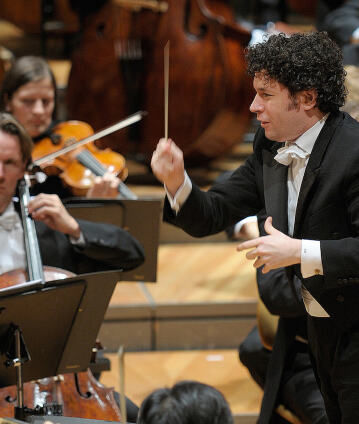Interview
Gustavo Dudamel on Ravel, Korngold and Richard Strauss Gustavo Dudamel dirige « Ainsi parlait Zarathoustra »

Avec un chef d’orchestre aussi énergique que Gustavo Dudamel, l’optimisme triomphant qui résonne dans Ainsi parlait Zarathoustra de Richard Strauss est entre de bonnes mains. Mais ce concert réserve aussi des couleurs fort différentes : Ma Mère l’Oye de Maurice Ravel, par exemple, peint avec élégance, poésie et humour des scènes de contes de fées. Quant au Concerto pour violon d’Erich Wolfgang Korngold, avec Leonidas Kavakos en soliste, il a toute la riche virtuosité d’une bande-son hollywoodienne.
Berliner Philharmoniker
Gustavo Dudamel
Leonidas Kavakos
© 2012 Berlin Phil Media GmbH
Interviews liées au concert
Artistes
Nos suggestions
- Simon Rattle dirige la « Pastorale » de Beethoven et des concertos de l’époque moderne
- Simon Rattle dirige l’Europakonzert 2015 à Athènes
- Adam Fischer et Leonidas Kavakos
- Une soirée Sibelius avec Simon Rattle et Leonidas Kavakos
- 2005 Europakonzert from Budapest with Simon Rattle and Leonidas Kavakos
- Beethoven’s Violin Concerto with Leonidas Kavakos and Zubin Mehta